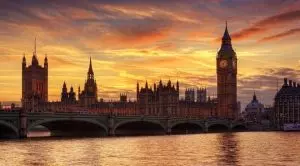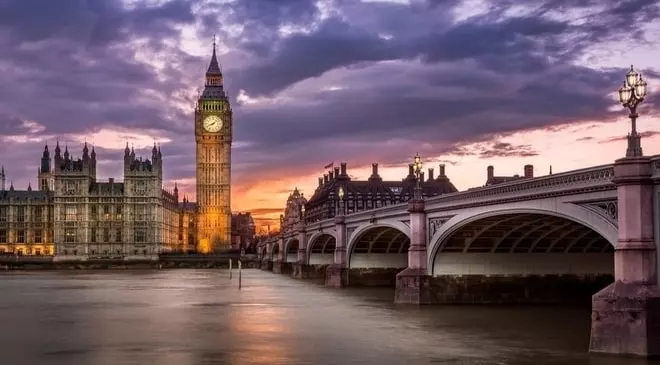 UK gambling operators would face a new Government tax, with the proceeds of the levy set to be granted directly to the National Health Service (NHS) as part of some new plans that are currently being considered by lawmakers.
UK gambling operators would face a new Government tax, with the proceeds of the levy set to be granted directly to the National Health Service (NHS) as part of some new plans that are currently being considered by lawmakers.
On April 2nd, the Mail on Sunday revealed that the long-expected White Paper on gambling is likely to include proposals for the gambling companies to make compulsory contributions to gambling addiction treatment programmes.
The report emerged only a few days after the UK Gambling Commission (UKGC) announced a decision to impose a record fine worth £19.2 million on the local betting giant William Hill over anti-money laundering and social responsibility failures.
For the time being, all operators that hold a licence issued by the country’s gambling watchdog are required to make an annual contribution to one or more organisations that are focused on delivering research, education, prevention and treatment for individuals who have been suffering from gambling-related harm. However, Members of Parliament have argued that the industry has to be forced to level up its contribution by making such payments standard and obligatory for the sector.
Reportedly, the UK gambling industry regulator is set to launch a consultation on the scale of the aforementioned obligatory levy and how it will be tailored to the differing profits and revenues of licensed gambling operators in the country.
NHS Refuses Voluntary Donations from the UK Gambling Sector
 The National Health Service now refuses to accept voluntary donations from the gambling sector to fund services aimed at problem gambling treatment, under the argument that it is a conflict of interest. However, Members of Parliament have explained that the implementation of a special gambling tax could circumvent that issue.
The National Health Service now refuses to accept voluntary donations from the gambling sector to fund services aimed at problem gambling treatment, under the argument that it is a conflict of interest. However, Members of Parliament have explained that the implementation of a special gambling tax could circumvent that issue.
As explained by a Government source, the much-expected White Paper is set to be the most comprehensive review of betting legislation in more than a decade and a half. The review’s purpose is to make sure that the gambling laws in the country become suitable for its purposes in the digital age, since the gambling landscape in the UK has been subject to significant changes since the Gambling Act came into force in 2005.
The Government source, which remains unnamed for now, has shared that the newest plan is to provide people with the choice and freedom to gamble in a responsible manner, and at the same time prevent harmful and addictive gambling. The introduction of a new levy for the licensed gambling operators in the UK will be one of the main ways to do so. According to local lawmakers, a new statutory levy would be able to provide direct funding for the National Health Service in order to expand treatment services for local gambling addicts and make sure such people are given access to the services they need in order to fight their compulsive gambling habits.
Many researchers would not support voluntary funding from the gambling sector and have called the independence of research funded by it into question.
Implementation of New Gambling Tax Could Cause Turmoil in the Government
 According to some sources, the considered gambling levy could lead to turbulence on Downing Street, claiming that now-Prime Minister Rishi Sunak objected to the idea of a levy at the time when he was Chancellor on the grounds that billions in tax have been already paid.
According to some sources, the considered gambling levy could lead to turbulence on Downing Street, claiming that now-Prime Minister Rishi Sunak objected to the idea of a levy at the time when he was Chancellor on the grounds that billions in tax have been already paid.
The chief executive officer of the trade body representing the legal gambling industry – Michael Dugher – has noted that around 22.5 million in the UK are regular gamblers, with most of them doing so in a safe and responsible manner. The boss of the Betting and Gaming Council (BGC) further shared that the current rate of problem gambling is just around 0.2% of British adult residents.
Still, the largest companies in the gambling industry have granted an extra £100 million to tackle gambling-related harm in the country through a new voluntary levy from 2019 on. Mr Dugher shared that this figure has increased even more in recent years. Apart from that, they donate even more through a harm-prevention programme aimed at school-aged children, along with the £4.2 billion tax that is being generated by the sector to help fund the National Health Service.
Mr Dugher, who is a former Member of Parliament from the Labour Party and one-time Shadow Secretary of State for Digital, Culture, Media and Sport (DCMS), explained that he supported the implementation of the proposed voluntary levy as a mandatory one. He also shared that all registered members of the Betting and Gaming Council do not object to it in principle. However, it is important to make sure that the money donated through the levy is really used to help the minority of people who need it.
- Author


